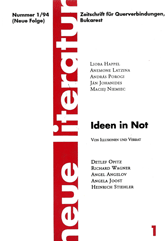

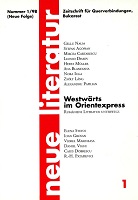

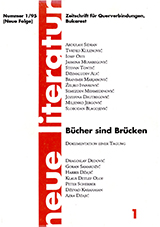
Keywords: Bosnia-Herzegovina; Bosnian literature;
Dokumentation of an symposium about Bosnian cultural identity.
More...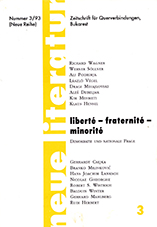
Keywords: Minority versus Majority; Exile; Integration; Assimilation;
Essay on the role of minorities, the relation between centre and margin, apropos the german literature from Romania.
More...
Keywords: Minorities in South Eastern Europe; Minority Question in Historical perspective;
Review of the publication on the Conference "The Minority Question in Historical Perspective 1900-1990. Inter University Center, Dubrovnik, April 8-14, 1991
More...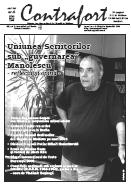
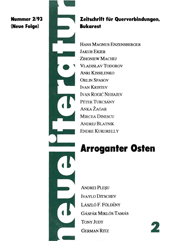
translated from Romanian to German by Gerhardt Csejka
More...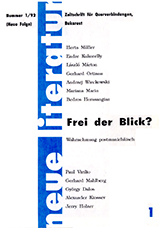
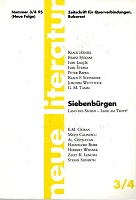
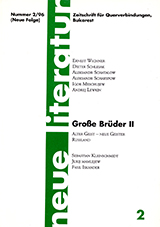
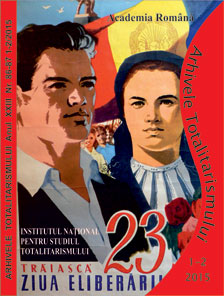
Keywords: Aktionsgruppe Banat; memory; ethno-cultural identity; censorship; reform communism; dissent;
This study represents the first part of an analysis focusing on Aktionsgruppe Banat and its members’ endeavors to reconstruct their pre-1989 common past. Based on memory sources, this first part illustrates that the members of this non-conformist group have not recently recalled their experience under Romanian communism in order to turn themselves retrospectively into dissidents. Instead, they have jointly conveyed the memory of a “collective author” with a unique identity in Ceauşescu’s Romania. As the present study argues, this uniqueness derives not only from the different ethno-cultural origin of the group members, but also from their specific literary program and indeed atypical political convictions.
More...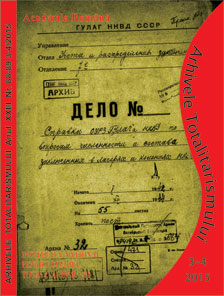
Keywords: memory; Securitate archives; ethno-cultural identity; communism; transitional justice;
This study represents the second part of an analysis focusing on Aktionsgruppe Banat and its members’ endeavors to reconstruct their pre-1989 common past. Based on documents from the archives of the former Securitate; this study addresses the concerted efforts of the Aktionsgruppe members to unmask all individuals who supplied the communist secret police with information about their activities in order to delimit themselves as a group from such wrongdoers. While their case was at the time interesting enough to be turned into teaching material for the secret police staff; their current endeavors to revisit their pre-1989 past with the help of documents from the Securitate files illustrates that Aktionsgruppe was a collective victim of this infamous institution; which proved unable to turn any of the group members into its collaborators.
More...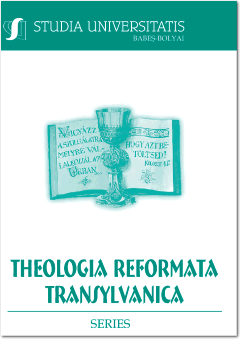
Keywords: Paul Gerhardt; Passion; Theologia crucis; mysticism; protestant hymns.
Paul Gerhardt (1607-1676) Lutheran pastor, theologian and hymnwriter is, without doubt, one of our most popular and well-known hymnwriters of all time, whose works remained an important part of the Protestant hymns. Gerhardt’s lyrics are not only valuable for the Protestant church music and singing, because he was an excellent poet of his time, but also because every song of his has a mark of the theologian-pastor’s theological confidence. Life, death, the contemplation of the sufferings of Jesus Christ, the theme of the confession of divine providence – the spiritual depth is present in every topic, along with the deliberate and conscious theological conception. Furthermore, he paired them with his personal experiences, sufferings, and his persistent belief in spite of all these. His Passion hymn starting with the „O, Sacred Head, Now Wounded” – „O Haupt voll Blut und Wunden” line certainly occupies an exceptional place, being one of the most frequently used good Friday’s hymns of ours. It has a baroque poet’s emotionality in it that gains from the orthodox Lu-theran liturgy and his personal experiences.
More...Keywords: censorship; the July theses; Bernd Kolf; Wolf von Aicherlburg; Verona Bratesch;
Das Gesamtbild von Zensur rumäniendeutscher Belletristik lässt eine Widersprüchlichkeit erkennen, die sowohl Autoren als auch Lektoren verwirrte. Im Vergleich zu der Akribie und der Beharrlichkeit der Zensurpraxis in der DDR weist das rumänische Zensursystem zahlreiche Lücken auf, die das Auffinden verbotener Bücher erschweren. Nach seinem Besuch in China entwarf Ceauşescu 1971 die 17 Thesen zur Verbesserung der politisch-ideologischen Arbeit, der kulturellen und erzieherischen Tätigkeit , die den Personenkult um Ceauşescu betonten und eine linientreue Literatur forderten. Zensoren wurden vorsichtiger und überprüften jeden Text auf seine ideologische Konformität. Das Archiv des ehe¬maligen Zensuramts „Allgemeine Abteilung für Presse und Druckerzeugnisse“, deckt heute die Funktionsmechanismen der Behörde auf und deren Auswirkungen auf das Werk einiger Autoren im Kontext des Jahres 1971.
More...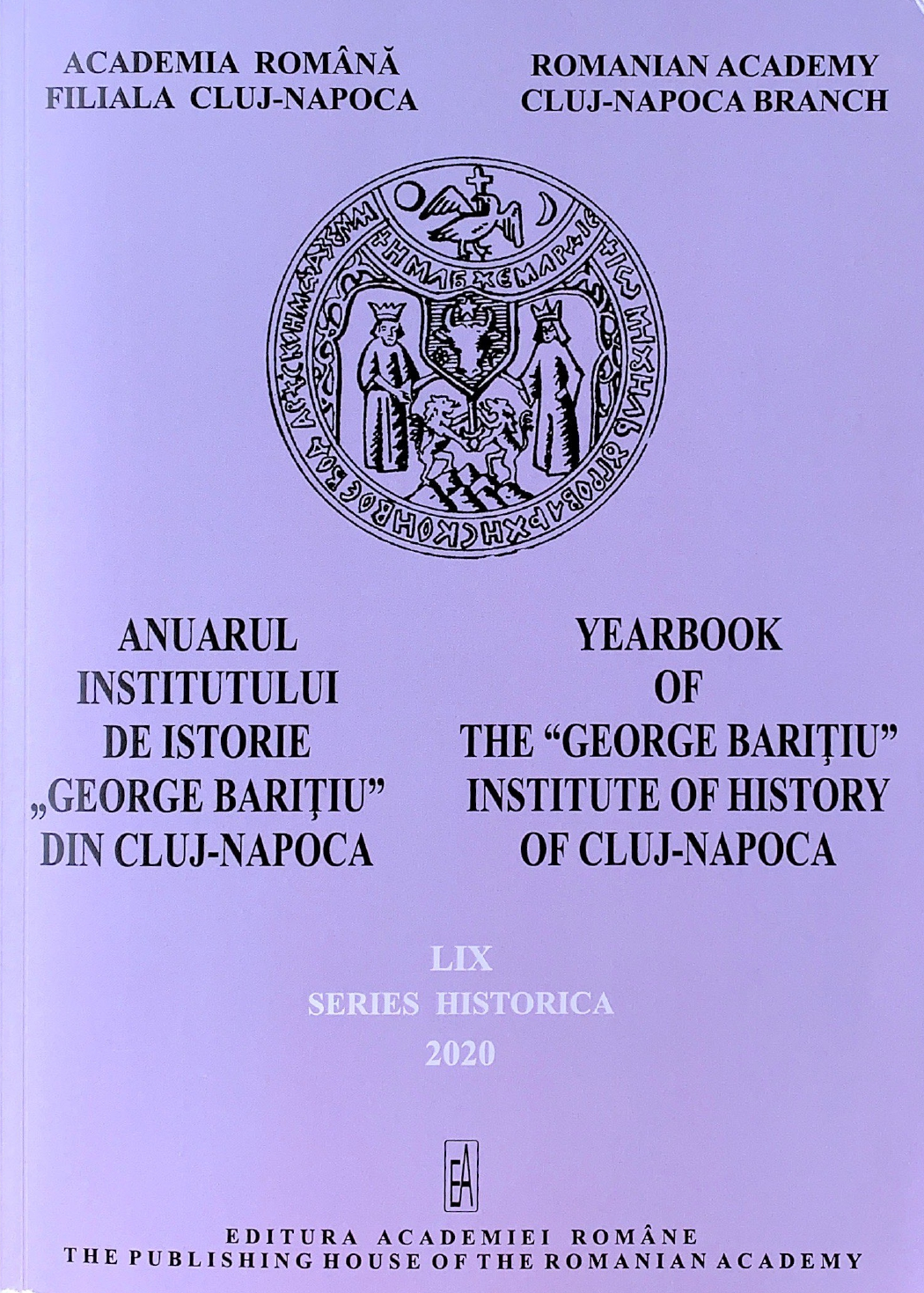
Keywords: transcultural; history of translation; German literature in Romania; Hungarian literature; Romanian literature; history of connections;
An overview of the Hungarian translations of German literature in Romania may not only carry significance as a literary historic curiosity, but general characteristics of heterogeneous regional literary contexts may be discovered by means of this analysis. On the one hand Hungarian translations of German literature in Romania and the history of their development shed light on the transmitting role of Hungarian literature in Romania between German literature in Romania and Hungarian literature, on the other hand the history of translations shows that translation in fact is a prominent practice of cultural transfer. An examination of the history of translations highlights that such heterogeneous translation culture is a principal characteristic of the diverse identity of the region and a transcultural approach may draw attention to the resemblances and interinfluences of literary phenomena in various languages.
More...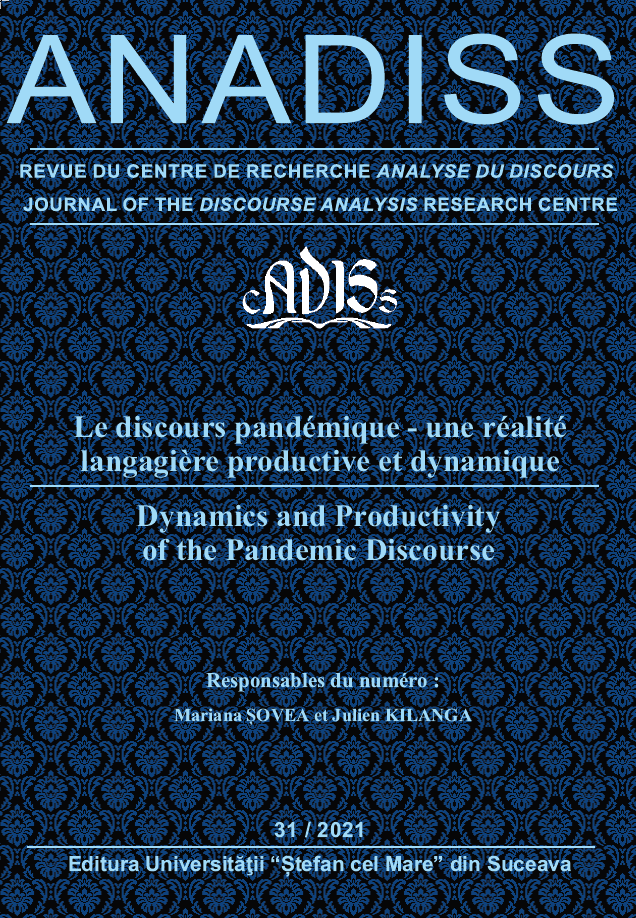
Keywords: Germanistik; Kulturtransfer;
Die Ausgabe 62/2018 der semestriellen Zeitschrift für Germanistik, Germanica, wurde von Marc Lacheny, Professor am Germanistischen Institut der Université de Lorraine - Metz und Raluca Dimian-Hergheligiu, Professorin für Germanistik in Suceava, zusammengestellt.
More...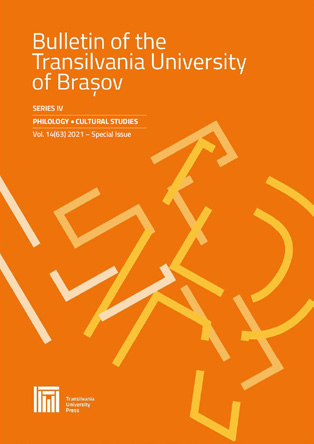
Keywords: Romania; Communism; German minority in Romania, Emancipation through literature; strategies of literary subversion; minor literature;
The following paper sets out to reevaluate the often misunderstood and underestimated German-language literature in Romania as a “minor literature” (Deleuze, 1976), that is, as literature that utilized its minority to achieve an authentic, subversive and innovative literary expression, that transcended the boundaries of ideologies and cultural and literary paradigms. The goal is to analyze this cultural phenomenon through Deleuze and Guattari’s theory, in order to explicate its marginal and authentic way of being in contrast to the tradition of western modernity and to the absolutist communist regime, which tried to obsessively snuff it out.
More...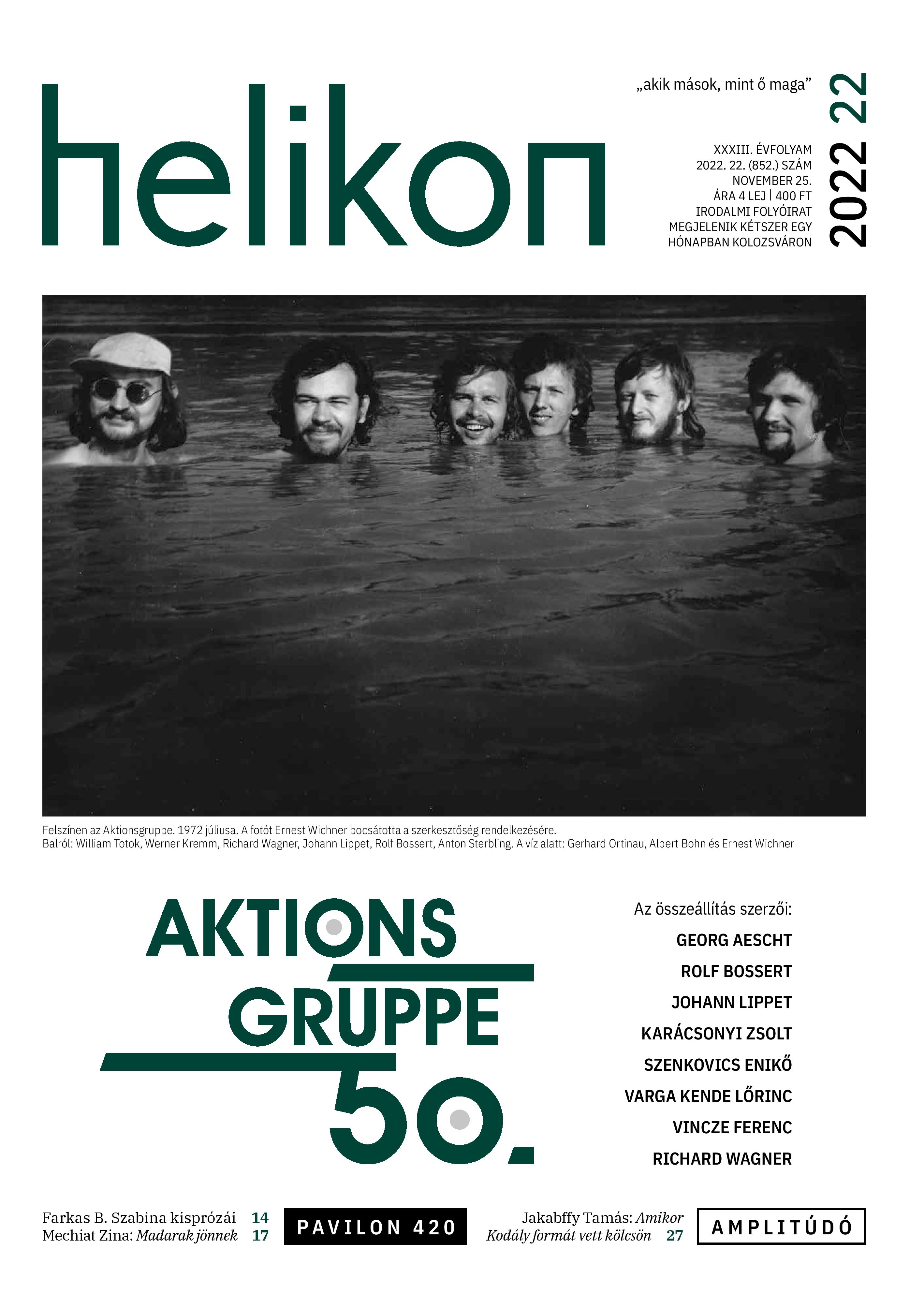
Keywords: György Petri;
A hetvenes-nyolcvanas évek magyar líratörténetének jelentős költészeti teljesítményeként tarthatjuk számon Petri György líráját, melyet nem csupán a kortárs líra Petri szövegeihez visszanyúló, azt továbbgondoló vagy azzal vitába szálló tendenciája mutathat fel, hanem egyúttal az értelmező próza számos produktuma is. Az egyik legutóbbi monografikus igényű munka lényeges szempontja hangsúlyosan az volt – mint azt a szerző, Horváth Kornélia a bevezetésben megfogalmazza –, hogy a kötetben helyet kapó „tanulmányok erőteljes figyelmet szentelnek a Petri-líra azon tulajdonságának, amelyet a magyar és a világlírához való igen szoros és rendkívül sokrétű kapcsolódásként nevezhetünk meg.
More...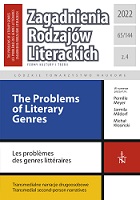
Keywords: second-person narrative; fictionality; narratology; autobiography; Maria Gerhardt;
In Maria Gerhardt’s autobiographical novel, Transfer Window (orig. Transfervindue, 2017), which is set in a fictionalized hospice universe and revolves around Gerhardt’s experience of being a terminal patient, the first-person protagonist, Maria, consistently refers to her partner as “you” without addressing her. This odd pronominal use is typically associated with second-person narrative. Yet, according to most definitions, Transfer Window is not a second-person narrative because of its 1) autobiographical content and 2) first-person protagonist. In this article, I argue that second-person narrative is any narrative in which a “you” is designated, but not addressed, and present a new typology consisting of four different types of second-person narrative: 1) fictional second-person narrative without a marked instance of enunciation, 2) fictional second-person narrative with a marked instance of enunciation, 3) nonfictional second-person narrative without a marked instance of enunciation and 4) nonfictional second-person narrative with a marked instance of enunciation. My approach to second-person narrative is rooted in rhetorical fictionality theory, which provides a framework that allows me to view second-person narration as a narrative technique that, because of its odd pronominal use, signals fictionality, but can occur in both generic fiction and nonfiction. In my analysis of Transfer Window, I dive into Gerhardt’s use of fictionality, both in relation to the setting and the narrative situation of the book.
More...